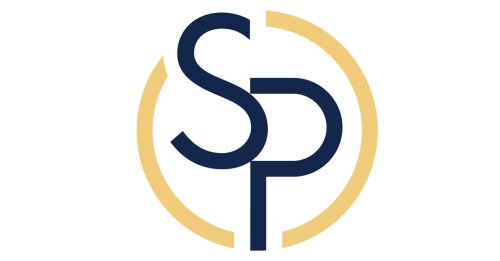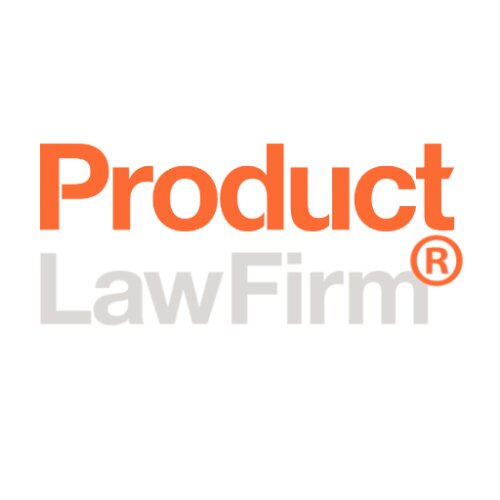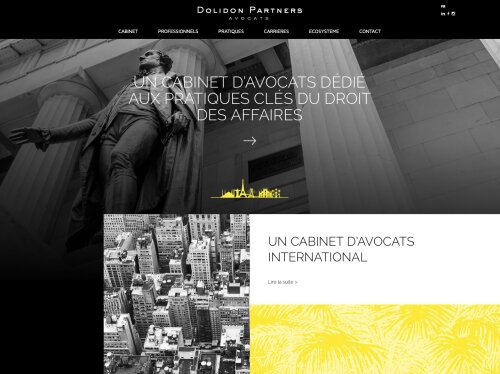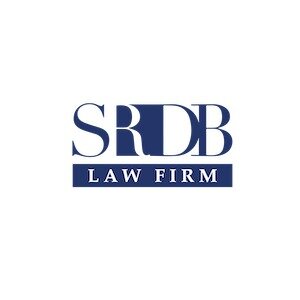Best Water Law Lawyers in Paris
Share your needs with us, get contacted by law firms.
Free. Takes 2 min.
List of the best lawyers in Paris, France
About Water Law in Paris, France
Water Law in Paris, France, is a specialized branch of environmental and public law that governs the management, use, and protection of water resources. This includes rivers like the Seine, groundwater systems, lakes, and public and private water supply networks. French Water Law is rooted in national legislation, notably the Code de l'environnement (Environmental Code), which sets out rules on ownership, distribution, usage rights, permits, pollution control, and dispute resolution. Additionally, France implements European Union directives related to water quality and resource management, ensuring harmonization with broader European environmental policies.
Why You May Need a Lawyer
There are several scenarios where individuals, businesses, or organizations in Paris may need legal assistance regarding Water Law. Common situations include:
- Property owners or developers seeking water extraction or discharge permits
- Businesses facing issues related to water pollution or contamination claims
- Municipalities or associations dealing with water management projects, infrastructure, or services
- Individuals concerned about their rights regarding groundwater or surface water access
- Environment-focused organizations contesting industrial activities impacting water bodies
- Disputes or litigation over water usage rights between neighbors or stakeholders
- Compliance with regulations regarding water quality or sanitation requirements
- Challenging administrative decisions or sanctions related to water activities
Local Laws Overview
Key legal frameworks relevant to Water Law in Paris include:
- Code de l'environnement: The main regulatory document, especially Book II (Water and Aquatic Environments), covers water protection, divided public and private water usage, permit requirements, policing of water resources, and management of aquatic environments.
- Water Development and Management Plans (SAGE and SDAGE): Local and regional water management plans define how water resources are used, protected, and planned within the wider Seine-Normandy basin, which includes Paris.
- Permits and Authorizations: Activities such as drilling wells, discharging wastewater, or modifying watercourses generally require approval by the Paris Prefecture or other competent authorities.
- Pollution and Sanction Regimes: Strict rules exist regarding the prevention of pollution and the respect of water quality standards, with penalties for non-compliance.
- EU Directives: The European Water Framework Directive influences local law, aiming at achieving “good status” for all water bodies.
Frequently Asked Questions
What permits do I need for water-related construction or works in Paris?
Permits are often required for activities such as drilling wells, modifying riverbanks, constructing near rivers, or discharging water. You must seek authorization from local authorities, usually the Paris Prefecture or relevant water management bodies, before starting work.
How is water ownership regulated in Paris?
Natural water sources such as rivers are publicly owned and managed, while groundwater on private property may be subject to usage rights and obligations. All significant extractions or uses require compliance with public law and local regulations.
What should I do if I suspect water pollution?
Report the incident to the local environmental authorities, such as the Direction Régionale et Interdépartementale de l’Environnement et de l’Énergie (DRIEE) or the police. Pollution events can lead to administrative orders and potentially criminal sanctions.
Are there restrictions on using river water in Paris?
Yes, the use of river water is subject to regulation, usually requiring specific permits. Unauthorized construction, extraction, or discharge is not permitted and can attract heavy penalties.
What legal protection exists for drinking water safety?
Drinking water is heavily regulated for quality and safety by public authorities. Local municipalities must ensure compliance with strict sanitary and health requirements, and users are protected by consumer regulations.
How can I contest a decision by the water authority?
Administrative decisions can typically be challenged through formal appeals to the relevant authority or via the Administrative Courts (Tribunal administratif). Legal advice is recommended for contested cases.
What rules apply to private wells in Paris?
Private wells are subject to declaration and potential permitting requirements. Users must comply with health, environmental, and public safety rules, and in some cases, abstraction volumes are limited.
Who is responsible for water utility disputes (billing, service issues) in Paris?
Water supply in Paris is mostly under the management of public service companies such as Eau de Paris. Initial complaints should be addressed to your provider. If unresolved, mediation or legal channels, including the consumer protection service, are available.
How does European law affect water management in Paris?
European water directives set minimum quality and management standards that all EU member states, including France, incorporate into local laws. These influence river basin management, pollution control, and sustainable usage policies.
What are the penalties for breaching water law regulations?
Penalties can include administrative fines, restoration orders, suspensions of activities, and even criminal charges in severe pollution cases. Repeat or serious violations may involve significant financial and reputational consequences.
Additional Resources
If you need more information or support, consider reaching out to these specialized organizations and authorities:
- Eau de Paris: The municipal company managing water supply in the city
- Agence de l’Eau Seine-Normandie: Manages water policy for the Paris region
- DRIEE Île-de-France: Regional Environment and Energy Directorate
- Ministry for the Ecological Transition (Ministère de la Transition écologique): Responsible for national water policy
- Paris Prefecture: Issues administrative authorizations and oversees water policing
- France Nature Environnement and other NGOs: Provide advocacy and support in environmental matters
- Local Administrative Tribunal (Tribunal administratif de Paris): For legal disputes and appeals
Next Steps
If you believe you need legal assistance in Water Law in Paris:
- Identify your specific issue and gather all relevant documents, permits, contracts, or communications.
- Contact an attorney or law firm with expertise in environmental and water law. Many offer initial consultations to assess your case.
- If your matter concerns public services, also reach out to the concerned authority or water provider for administrative resolution first.
- Keep a written record of all steps, communications, and official responses.
- If facing urgent issues, such as pollution or a building halt, seek immediate legal advice as there may be strict deadlines for action or appeals.
Legal proceedings can be complex, and early legal guidance is critical to protect your interests and ensure compliance with all applicable laws and regulations.
Lawzana helps you find the best lawyers and law firms in Paris through a curated and pre-screened list of qualified legal professionals. Our platform offers rankings and detailed profiles of attorneys and law firms, allowing you to compare based on practice areas, including Water Law, experience, and client feedback.
Each profile includes a description of the firm's areas of practice, client reviews, team members and partners, year of establishment, spoken languages, office locations, contact information, social media presence, and any published articles or resources. Most firms on our platform speak English and are experienced in both local and international legal matters.
Get a quote from top-rated law firms in Paris, France — quickly, securely, and without unnecessary hassle.
Disclaimer:
The information provided on this page is for general informational purposes only and does not constitute legal advice. While we strive to ensure the accuracy and relevance of the content, legal information may change over time, and interpretations of the law can vary. You should always consult with a qualified legal professional for advice specific to your situation.
We disclaim all liability for actions taken or not taken based on the content of this page. If you believe any information is incorrect or outdated, please contact us, and we will review and update it where appropriate.















